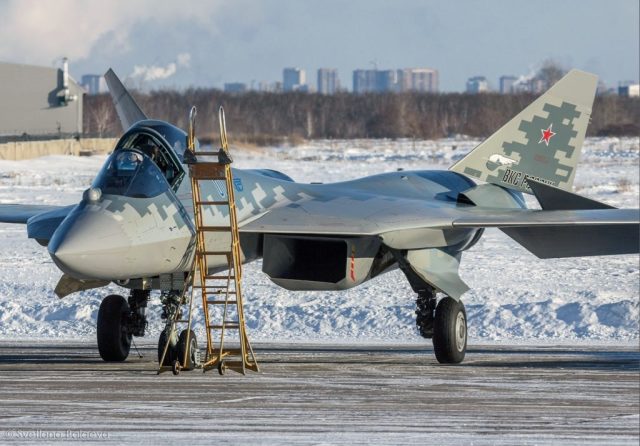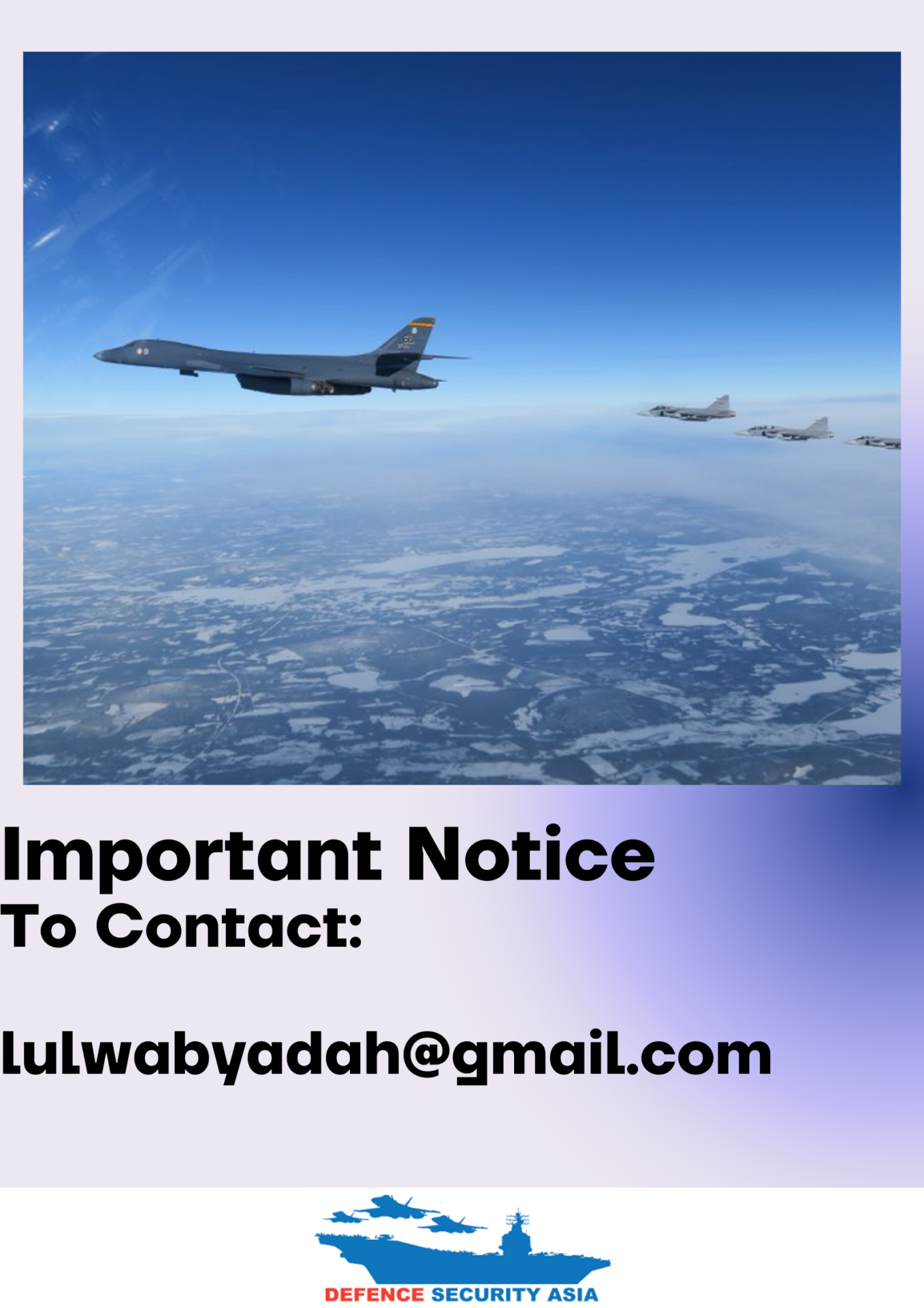Russia Equips Su-57 ‘Felon’ with More Powerful New Engine, AL-51F1 (Izdelie 30)
Beginning this year, the United Aviation Corporation will commence the delivery of upgraded Su-57 fighter jets to the Russian Air Force (Russian Aerospace Force), equipped with a new engine known as AL-51F1, formerly referred to as "Izdelie 30."
(DEFENCE SECURITY ASIA) — Beginning this year, the United Aviation Corporation will commence the delivery of upgraded Su-57 fighter jets to the Russian Air Force (Russian Aerospace Force), equipped with a new engine known as AL-51F1, formerly referred to as “Izdelie 30.”
The upgraded variant of the fighter, featuring the new engine and various enhanced capabilities, is designated as Su-57M (Modification).
According to reports from Russian defense media, the new engine for the Su-57M has successfully undergone all tests, demonstrating a thrust power of 11,000kg and an afterburner capability of 18,000kg.
With its upgraded engine, the Su-57 fighter now has the capability to achieve a cruising speed of Mach 2.
Currently, the Su-57 Russian fighter is equipped with the AL-41F engine or its variant, the AL-41F1S.

This has been cited as a primary reason why entities outside Russia have been cautious in recognizing it as a fifth-generation fighter.
However, with the introduction of the new AL-51F engine, observers assert that the Su-57 is now officially classified as a fifth-generation fighter.
Observers note that the previous engine, AL-41F1, hindered the Su-57 from reaching supersonic speeds without afterburner, a crucial feature for the recognition of fifth-generation fighters.
However, they acknowledge that the F-35 fighter also lacks this capability, but it has not prevented the global aviation community from recognizing it as a fifth-generation fighter.
In recent times, the Su-57 fighter has transitioned from being a basic fifth-generation fighter to a more modernized version, equipped with advanced components.
It has seen improvements in avionics, systems, and various upgrades such as the introduction of “flat nozzle” and what Russia refers to as “ceramic turbines.”

Additionally, the United Aviation Corporation has reportedly incorporated more Artificial Intelligence (AI) systems into the fifth-generation fighter, enabling the Su-57 to truly emerge as a next-generation fighter.
Recently, the company announced its readiness to equip the Su-57 with next-generation short-range air-to-air guided missiles.
The revelation about the fifth-generation short-range air-to-air guided missile, known as “RVV-MD2,” was made by the Moscow-based company GosMKB Vympel.
The company, renowned for producing various guided missile systems, stated that the “RVV-MD2” missile is ahead of its Western competitors by five to ten years in terms of development.
The air-to-air guided missile “RVV-MD2” is currently in production.
It is the latest variant of the RVV-MD guided missile and is designed to eliminate airborne targets such as fighter jets, helicopters, bombers, and transport aircraft.

One of the key features of this latest air-to-air guided missile is its ability to engage airborne targets from any angle, including those positioned behind the launching aircraft.
To enhance the threat level posed by its fifth-generation fighter Su-57, Russia has also equipped it with a new Air Launched Cruise Missile (ALCM) capable of targeting distant objectives.
Named “KRBB,” this long-range cruise missile has a striking range of 600km.
According to Russian news agency RIA Novosti, the striking range of the KRBB cruise missile carried by the Su-57 is comparable to the air-launched guided missiles carried by Russia’s strategic bomber aircraft, Tu-95 and Tu-160.
Sukhoi Design Bureau test pilot Rafael Suleimanov reportedly stated that the Su-57 is now equipped with Artificial Intelligence (AI) technology, enabling it to “perform any task while airborne.” — DSA



Comments are closed.